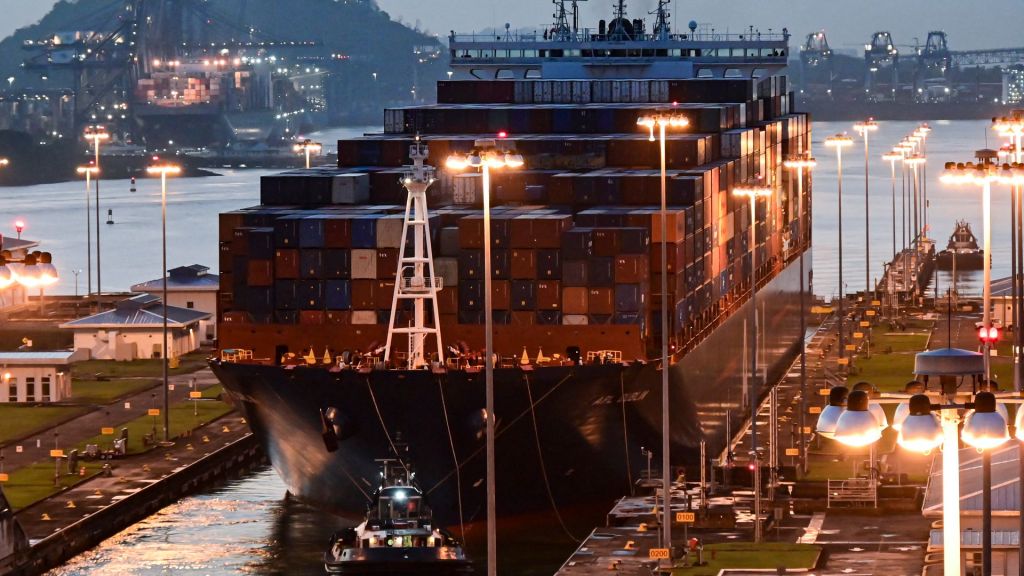
Commentary
-
Our commentary partners will help you reach your own conclusions on complex topics.
Peter Zeihan here coming to you on March 8th still. A couple updates on what’s going on with energy.
We hit $130 odd dollars yesterday. Crude is back down about $1.20 something today, but we’re not done going up.
There’s a lot of discussion going on in the United States and Europe, both about boycotting Russian energy sales completely. But honestly, that’s just catching up to where we are.
What’s going on is that insurers are not covering ships that are going to pick up crude at Russia’s Black Sea ports. Captains don’t want the stuff on their boats, so they’re not sailing to even ports that are allowed. And even if you do get Russian product out of the country, you then have to find a place where the dock workers will actually unload it. And that’s just not happening almost anywhere in the European sphere.
We’re even hearing some reports that the Russians are starting to have problems selling crude out of their Pacific loading port.
Now, all this has led to a lot of speculation that the Chinese are going to be able to swoop in and just grab 100% market share from everything that other folks are not buying. With some products, there might be some truth to that, but not with oil.
The problem is infrastructure. The pipes that supply the Chinese with Russian crude tap different fields than the pipes that supply the Europeans with Russian crude. And if you can’t get Russian crude from the west onto a tanker, there is no way to get it to China. It just gets shut in. In fact, we might see Chinese imports of Russian oil and natural gas drop.
I’d estimate that about half of the oil and natural gas production in Russia is only possible because Western companies have come in and showed the Russians how to do it, especially with newer fields in Eastern Siberia, the ones that are critical for China.
Well, every American and European super major has withdrawn, and the next rounds of sanctions, while they might not necessarily target energy sales, they’re certainly gonna make it more difficult for the services firms, like Halliburton, to get and carry out normal operations in Russia.
The only question is whether or not the drop off in Russian output is going to be gradual or steep. I’d argue it’s going to be steep.
One of the things we saw back in 1989, when the Russian system, the Soviet system, collapsed is when there wasn’t enough demand in Russian industry, pressure started building up in the pipes from the point of consumption or the point of sale all the way to the wellhead, and they had to shut the whole thing down.
Because Russia’s weather is erratic and harsh, and because most Russian production is in the permafrost, even a short-term shutdown can mean you can never use that well again.
It took ’em 32 years to repair that damage and get back to production levels that they had back in 1989. They had only gotten there like a quarter ago, and now they have to go through it all over again.
So is it China, a beneficiary of this? I don’t see it, but it doesn’t really mean that anyone else is either.
Oil prices are going up. And if you remove Russia’s 5 million barrels of crude exports a day from the market, if we go, if we stop at $200, I’d consider us lucky. Well, that’s kind of a sad note to end on, but until next time.
-
Hurricane Helene hits US coast, Appalachia and beyond
Hurricane Helene hit Florida and Georgia overnight between Sept. 26 and 27 as a Category 4 hurricane, and accompanying storms will continue reaching deeper into the continental United States today. Dangerous flash flooding from the hurricane, known as storm surge, was some of the worst flooding that the Tampa Bay area has ever seen, and… -
Israel holds upper hand against Lebanon, Hezbollah and Iran
On Wednesday, Sept. 25, Hezbollah launched a ballistic missile at Tel Aviv in retaliation for Israel’s explosive pager attack that blew up devices across Lebanon. Although Israel’s defense systems intercepted the surface-to-surface missile, the attempted strike on Tel Aviv marked a significant escalation by Hezbollah. Since the siege on Gaza began, shortly after the Oct. 7, 2023,… -
The Sinaloa Cartel civil war
Fears of a civil war within the Sinaloa Cartel are growing as violence between competing factions within the cartel continues. The Mexican Army has dispatched around 600 elite troops to Sinaloa to help quell those fears, in addition to roughly 2,200 regular soldiers and National Guard. Watch the above video as Straight Arrow News contributor… -
New Ukrainian weapons hit Russia where it hurts
Ukrainian drones struck a major Russian ammunition depot, triggering a massive explosion that was captured on camera. According to the Ukrainian military, 2,000 tons of munitions had arrived at the depot before the attack. Over the past two years, Ukraine has significantly increased its domestic drone production, allowing it to scale up attacks on military… -
Weighing social costs vs. economic benefits on immigration
Global human migration is one of the defining elements of our current historical era, according to the United Nations. Migrants face both the incentives to leave — forced out by climate change, crime and corruption, extreme poverty or violence — and incentives for where to go, based on available job opportunities and so on. Migration…
Latest Stories
-
 AFP
AFP
Tesla sales decline in China amid rising domestic competition
-
 Getty Images
Getty Images
Illinois bill proposes mental health defense for attacks on police
-
 Getty Images
Getty Images
State Farm VP fired over comments in undercover video on wildfires, rate hikes
-
 Getty Images
Getty Images
Judge orders Trump admin to rehire thousands of fired federal workers
-
 Getty Images
Getty Images
North Dakota could be first state to ask SCOTUS to repeal same-sex marriage
Popular Opinions
-
In addition to the facts, we believe it’s vital to hear perspectives from all sides of the political spectrum.
Latest Opinions
In addition to the facts, we believe it’s vital to hear perspectives from all sides of the political spectrum. We hope these different voices will help you reach your own conclusions.
The opinions published in this section are solely those of the contributors and do not reflect the views of Straight Arrow News.





















Latest Commentary
We know it is important to hear from a diverse range of observers on the complex topics we face and believe our commentary partners will help you reach your own conclusions.
The commentaries published in this section are solely those of the contributors and do not reflect the views of Straight Arrow News.
Dr. Frank Luntz
Pollster and Political Analyst‘Division’: Americans react to Trump address to Congress
‘Overblown’: Americans debate the merits of DEI policies
‘Biased’: What Americans think of ‘mainstream media’